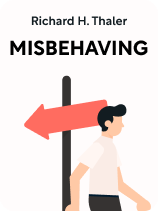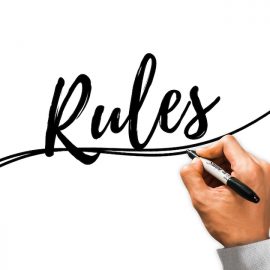

This article is an excerpt from the Shortform book guide to "Misbehaving" by Richard H. Thaler. Shortform has the world's best summaries and analyses of books you should be reading.
Like this article? Sign up for a free trial here.
What’s the prisoner’s dilemma in economics? How does the prisoner’s dilemma represent cooperation?
The prisoner’s dilemma is an experiment that reveals if people would betray or cooperate with their partners, depending on the reward and punishment. This theory can be applied in an economic setting as well.
Check out how the prisoner’s dilemma works when it comes to finances.
What Is the Prisoner’s Dilemma?
Economist Richard H. Thaler argues that variants of the prisoner’s dilemma in economics suggest that individuals often prefer cooperating with others over maximizing their own well-being. Thaler explains that, in the classical prisoner’s dilemma, two prisoners arrested for collaborating on a crime are interrogated and allowed to inform on their collaborator or remain silent. If both prisoners remain silent, they will only spend one year in jail for a small infraction; if both prisoners inform on each other, they will each spend five years in prison; and if one prisoner informs but the other doesn’t, then the informer will get off scot-free while the other will spend 10 years in prison.
(Shortform note: Experts note that situations analogous to the prisoner’s dilemma often occur in business contexts when companies compete against one another. To illustrate, imagine that two companies sell a similar product, such as two airline companies selling tickets for the same flights. In this case, both companies are dependent on each other to keep prices high, because if one company cuts prices attempting to gain a larger market share, then the other company would cut prices as well to prevent this. Thus, both companies’ profit margins would decrease, while cooperating would have kept profit margins higher. For this reason, cutting prices is functionally similar to informing on your collaborator in the prisoner’s dilemma.)
As Thaler relates, if the traditional economic assumption that individuals maximize their own well-being were true, both prisoners would inform on each other. To see why, imagine that you’re one of the two prisoners. Logically, there are two options: Either your collaborator will inform on you, or they won’t. If they do inform on you, you should likewise inform on them, since doing so would reduce your sentence from 10 years to five years. If they don’t inform on you, you should still inform on them, since doing so would reduce your sentence from one year to zero years. Regardless, standard economic theory dictates that you should inform.
(Shortform note: Using vocabulary from game theory, informing on your collaborator is the dominant strategy, meaning that it yields the best outcome for you regardless of how the other player acts. According to standard economic theory, you should always utilize the dominant strategy if one exists, since doing so seems to maximize your own self-interest.)
However, Thaler says, when variants of the prisoner’s dilemma are performed in the laboratory, we find a different result: 40-50% of prisoners (that is, those playing the role of prisoners) refuse to inform on each other, instead remaining silent even if it means spending a year in jail. Thus, it seems that prisoners are interested in cooperating with each other, even though standard economic theory says that cooperation is irrelevant.
(Shortform note: In 1980, political scientist Robert Axelrod held a tournament pitting various prisoner’s dilemma strategies against one another via computer programs that played successive rounds of the game. The most successful strategy, he found, was known as the “tit for tat” strategy: It cooperated on the first move, then did whatever its opponent did the previous move. For example, if the opponent cooperated on the first move, it would cooperate on the second move, whereas if the opponent informed on the first move, it would inform on the second. Thus, the “tit for tat” strategy benefited through cooperation with a collaborative opponent, but avoided exploitation by informing against adversarial opponents.)

———End of Preview———
Like what you just read? Read the rest of the world's best book summary and analysis of Richard H. Thaler's "Misbehaving" at Shortform.
Here's what you'll find in our full Misbehaving summary:
- Why the theory of traditional economics rests on a faulty foundation
- How consumers actually behave in economic situations
- Real-world cases of behavioral economics helping consumers






